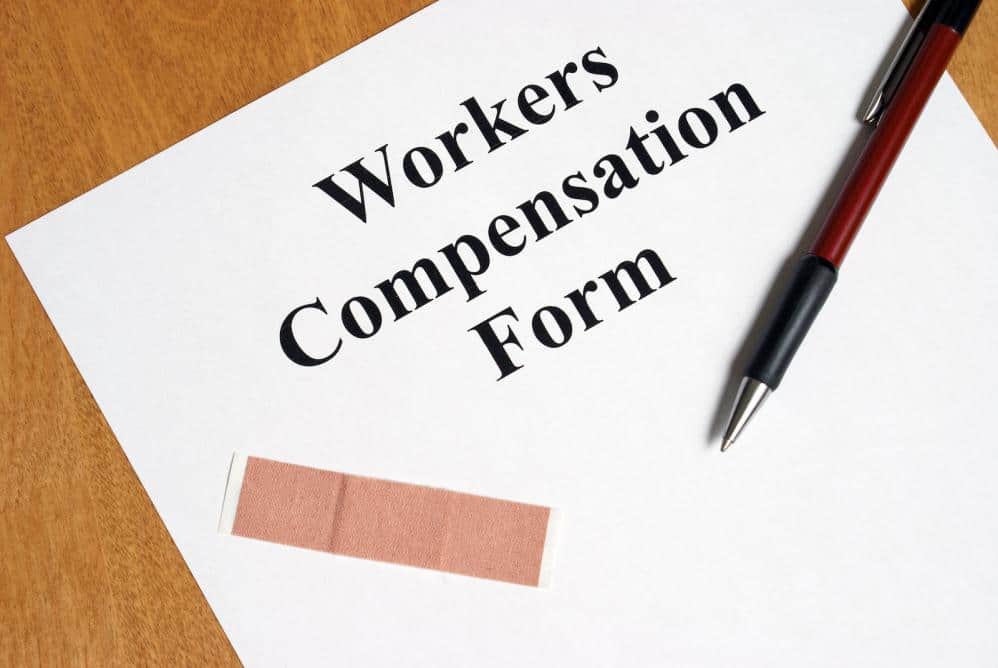Types of Worker’s Compensation Benefits

Worker’s compensation policy is a matter of significant importance at most workplaces. The state gives a lot of importance to the compensation policy and the well-being of employees is taken care of. The policy is meant to afford the benefits to the injured or affected employees, while at work or because of work.
Typically, there are four types of benefits that are covered by the state for all the employees. These are the medical coverage, rehabilitation, disability benefits, and death benefits. If you are eligible for any compensation through the compensation policy, you may be wondering what and how will you receive any benefits from it. The benefits are consistent throughout different states but the way they are distributed might differ. Let’s take a look at the compensation benefits you may be eligible to receive.
Medical Coverage
If you are injured at work or fall ill due to a work incident or work conditions, then you are eligible to receive medical coverage through the worker’s compensation policy. All the expenses you face, like medical visits to the hospitals, prescribed treatments and surgery, will be covered under the compensation benefits policy. Even though the details may vary from case to case, the benefits generally cover all the expenses. Moreover, the use of some equipment required post-surgery like wheelchairs, braces, crutches or special vehicle, will also be part of the compensation received under the policy.
If your medical care requires any special treatment like chiropractic treatment or counseling after the incident, in most cases, it will also be covered under the coverage you receive from the compensation policy. However, worker’s compensation benefits do not cover any treatments carried out for experimental or investigative purposes. In order to get coverage for such procedures, you will have to take the services and assistance of an attorney in making a case for their necessity.
To receive the coverage, you or your doctor will have to get approval from the authorities for your treatment. In some states, the law also defines the provider for the treatment and will regulate the amount you will be requiring for it. The state employs insurers and agents who keep a critical check over the payments made in the process. They work to keep the costs at a minimum and administer the treatments the patient is receiving.
Rehabilitation
Some severe injuries require a period of rehabilitation after the treatment. The rehab is usually part of the extended treatment and is of significant importance to the patient’s recovery. These rehabilitation processes are also costly and in most cases, covered under the worker’s compensation benefits.
Rehabilitation services like physical therapy after a physical injury are mandatory. They help the injured worker in gaining back the strength and physical ability required for returning to their job. Another common rehabilitation service needed is treatment for post-traumatic stress disorder (PTSD). Injuries can take a toll physically and mentally and rehab, both mental and physical, is part of the treatment process.
The compensation benefits will cover all the expenses for your treatment and help you return to the job. However, if you are unable to return to your job, you can make use of the compensation to pay for the tuition, retraining and any other related expenses needed for getting another job.
Disability
If you or any other worker gets disabled because of a work-related injury, then they are qualified for receiving disability benefits. The disability prevents the workers from returning to work or working at their full capacity as they used to before. Disability benefits are a part of worker’s compensation benefits and are intended to substitute for a portion of the employee’s wages. These benefits are classified under four categories and the benefits are paid accordingly.
- Temporary Partial: Workers partly disabled for a short time period without completely losing the ability to work come under this category. Workers are allowed to work for a limited amount of time while their injuries heal. For example, if a worker’s foot broke while working and they can still work after getting some treatment, but for limited hours, then they will be compensated under this category. The benefits received will be to compensate for the difference between previous wages and the reduced wages.
- Temporary Total: The workers who cannot work at all because of their injury for a short time period. The short period of the worker’s recovery may be up to six weeks, after which they may come back to work at their full capacity. The short duration of recovery allowed in this case is the doctor’s discretion. When the doctor decides that the patient has recovered and can work, the compensation benefits come to an end.
- Permanent Partial: This category includes injuries that are permanent but affects the worker only partly. For example, if a worker loses their hearing ability or loses an arm permanently due to an injury, they will be compensated under this category. However, in most cases, the benefits are limited to specific time duration.
- Permanent Total: Workers that have sustained serious injuries and cannot work entirely fall under this category. The rules are complicated to conclude total disability.
The amount workers receive as disability benefits depend on how much they earned before the injury or disability. Mostly, the state puts a cap on the amount that is allowed to be paid and also sets a minimum amount that the worker should receive.
Death
According to the worker’s compensation policy, the death benefit covers the financial contribution toward the deceased worker’s dependents. It includes spouses, kids, parents, siblings and is a percentage of the worker’s total earnings. In some cases, the benefits also cover the funeral and burial expenses for the deceased.
Every state has a different worker’s compensation policy and understanding its every critical detail is difficult. Contact Cherry Injury Law to see if you are eligible for more compensation benefits and get more details on the matter.








 Cherry Injury Law RSS Feed
Cherry Injury Law RSS Feed



